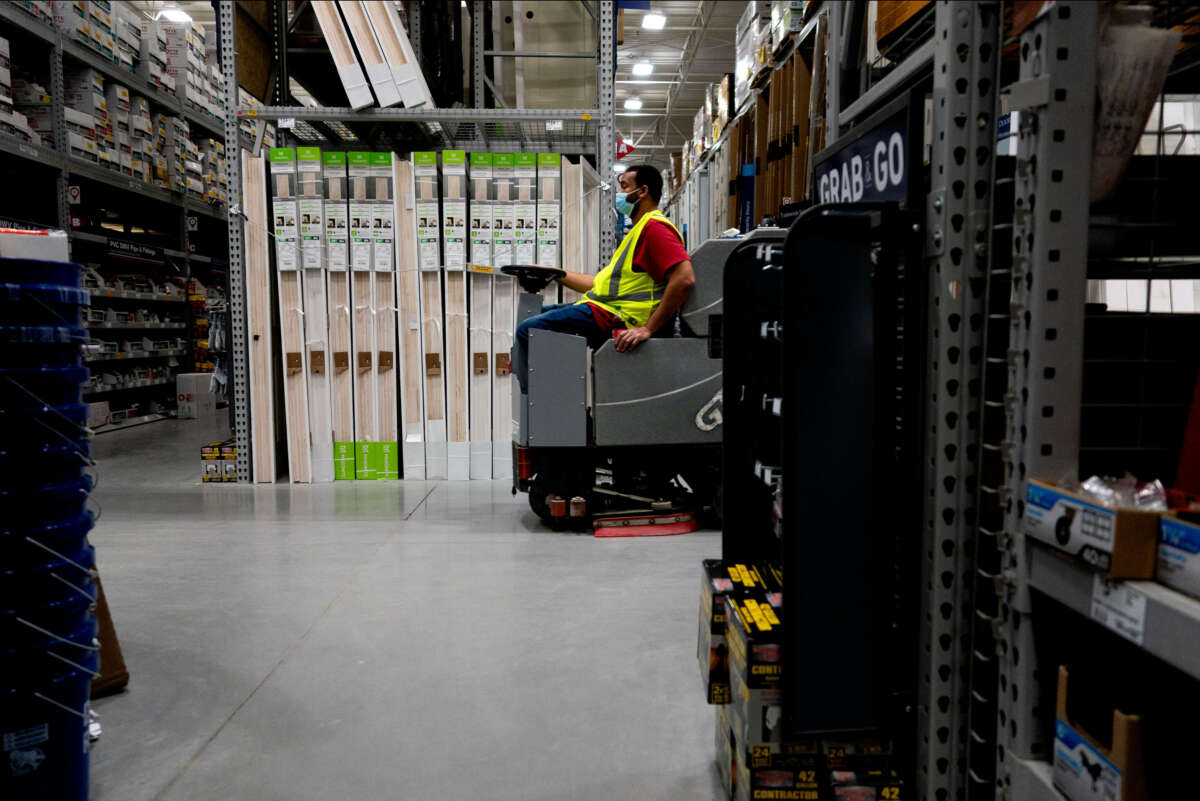The median worker at Lowe’s, the home improvement retailer, made just over $29,580 last year — not enough to comfortably afford a modest one-bedroom rental home in the United States.
But the company was hardly cash-strapped in 2022. According to a report released Thursday by the Institute for Policy Studies (IPS), Lowe’s spent more than $14 billion on stock buybacks that year, providing an artificial boost to the company’s share price and further enriching wealthy investors and executives.
If Lowe’s had instead opted to use that cash to the benefit of its employees, every one of the corporation’s U.S. workers could have received a $46,923 bonus, IPS calculated.
Lowe’s is part of a group of companies that IPS calls the Low-Wage 100, which includes the S&P 500 businesses with the lowest median worker pay last year.
Between January 1, 2020 and May 31, 2023, Lowe’s and other Low-Wage 100 firms spent $341.2 billion on stock buybacks. Lowe’s, whose CEO saw total compensation of $17.5 million last year, has spent the most of any Low-Wage 100 company on buybacks over the past three years, followed by Home Depot, Walmart, and S&P Global.
The average CEO-to-median-worker pay ratio at Low-Wage 100 companies last year was 603 to 1, and the top executives of the low-wage companies benefited directly from last year’s splurge on stock buybacks, which increase shareholders’ ownership stake.
“The CEOs of the 90 Low-Wage 100 companies that have spent funds on buybacks own approximately $14.9 billion worth of their company stock,” the IPS report notes. “At the 65 buyback companies where the same person held the top job between 2019 and 2022, the CEOs’ personal stock holdings soared 33% to an average of $184.7 million. Median pay at these firms rose only 10% to an average of $31,972. These figures do not reflect inflation because the median pay figures cover a global workforce.”
IPS found that 51 of the companies in the Low-Wage 100 — including Amazon, FedEx, and Johnson Controls — received a combined $24.1 billion worth of federal contracts between fiscal years 2020 and 2023, potentially giving the federal government leverage to force the companies to rein in out-of-control executive compensation and stock buybacks.
As part of a menu of proposed policy solutions, IPS urged President Joe Biden’s administration to give federal contractors that don’t repurchase their own shares priority in the awarding of subsidies and grants, a move that would build on a policy the U.S. Commerce Department enacted last year for semiconductor subsidies.
The group also called on federal lawmakers to pass legislation to impose higher taxes on companies with yawning gaps between CEO and worker pay. In 2021, Sen. Bernie Sanders (I-Vt.) proposed a bill that would have hiked taxes on large corporations that pay their top executives over 50 times more than their median workers.
“Policymakers could do much more to narrow the divides — including through executive action,” said Sarah Anderson, director of the IPS Global Economy Project and author of the new report. “President Biden should wield the power of the public purse to push all corporate recipients of taxpayer money to narrow their pay gaps, stop wasting money on buybacks, and respect worker rights.”
48 Hours Left: All gifts to Truthout now matched!
From now until the end of the year, all donations to Truthout will be matched dollar for dollar up to $28,000! Thanks to a generous supporter, your one-time gift today will be matched immediately. As well, your monthly donation will be matched for the whole first year, doubling your impact.
We have just 48 hours left to raise $28,000 and receive the full match.
This matching gift comes at a critical time. As Trump attempts to silence dissenting voices and oppositional nonprofits, reader support is our best defense against the right-wing agenda.
Help Truthout confront Trump’s fascism in 2026, and have your donation matched now!
